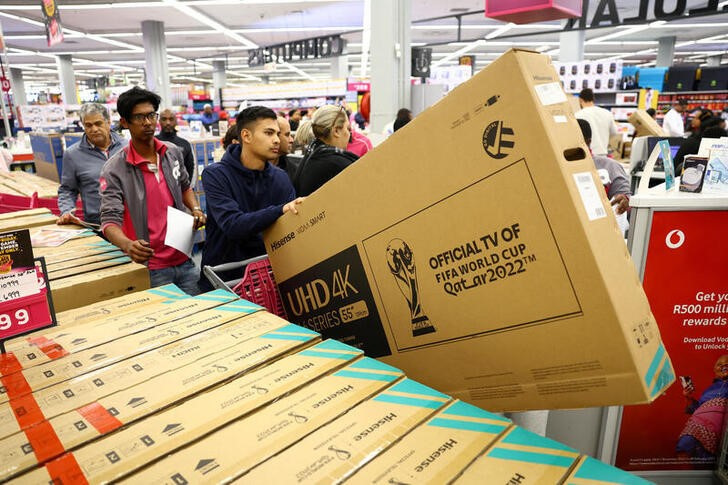(Reuters) - South Africa's consumer confidence regained some composure in the third quarter, according to a survey released on Thursday, as a rebound in the economic outlook and improvement in time-to-buy durable goods increased households' "willingness" to spend.
The consumer confidence index, sponsored by the First National Bank (FNB) and compiled by the Bureau for Economic Research, fell to a reading of minus 16 points, from minus 25 points in the second quarter of 2023.
Africa's third-largest economy and its affluent consumers, in particular, have been distressed by the depreciation in the rand's exchange rate, successive interest rate hikes and frequent power cuts.
The index saw a "remarkable" recovery in the confidence of high-income households after it plunged to an all-time low in the last quarter, the survey added.
"While the financial pulse of the nation remains weak, there appears to be some light at the end of the tunnel for consumers. The CPI inflation rate cooled from 7.1% in March 2023 to 4.7% in July, fuelling hopes that the South African Reserve Bank has reached the end of its interest rate hiking cycle," said FNB Chief Economist Mamello Matikinca-Ngwenya.
Households' ability to spend, however, is still not on par with its willingness to spend.

"A sustained moderation in inflation – especially in food prices – should start to relieve some of the pressure on retail sales volumes from the fourth quarter," the survey added.
The latest reading remains well below the long-run average consumer confidence index reading of zero since 1994.